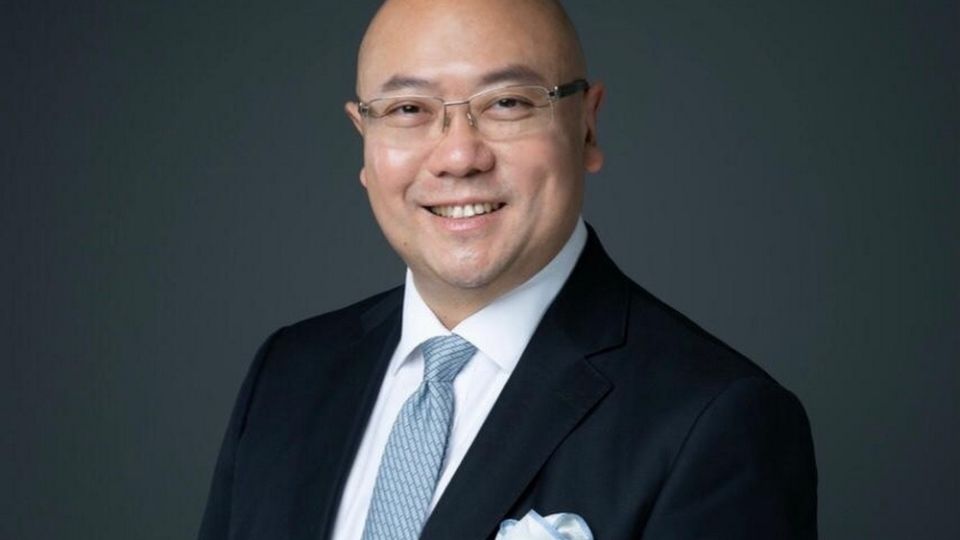June 14, 2024
HONG KONG – The Office for Attracting Strategic Enterprises (OASES), set up only a year and a half ago, has enticed 50 industry leaders to establish a presence in Hong Kong, leveraging the city’s proactive approach and unique advantages such as in geographical location and policy support. This is expected to bring over HK$40 billion ($5.12 billion) in investments to Hong Kong.
The OASES has targeted four industries of strategic importance to the Hong Kong Special Administrative Region — life and health technology, artificial intelligence and data science, fintech, as well as advanced manufacturing and new-energy technology. The office follows an approach of drawing up a list of target enterprises and reaching out to them proactively.
In an exclusive interview with China Daily Hong Kong Edition, OASES Executive Director Charles Ng said that in 2023, the office has met with more than 200 companies globally, and this year’s target is 300.
Of the 50 enterprises that the office has helped to expand in Hong Kong, around 80 percent are from the Chinese mainland, with the remaining 20 percent from Europe and North America.
“Many mainland companies use Hong Kong as a springboard to go globally, while companies from elsewhere come here out of their interest in the mainland and Asian markets, which can be seen as a two-way traffic,” Ng said.
In addition to the Chinese mainland, Europe and the US, the OASES will explore diversified sources of potential markets, such as Southeast Asia and the Middle East.
Close to 40 percent of the enterprises that the OASES has met with operate in the life and health technology sector.
A key draw is Hong Kong’s worldwide reputation for its strength in clinical trials and research of medicines. Data from trials are recognized by major drug regulators worldwide, including those on the Chinese mainland, the United States, and Europe.
Moreover, Hong Kong boasts a thriving traditional Chinese medicine (TCM) industry alongside its Western medical expertise. The city’s first public TCM hospital is expected to open in late 2025.
In November, global pharmaceutical giant AstraZeneca, with the help of the OASES, announced the establishment of an incubator Hong Kong iCampus and research-and-development center in Hong Kong. The latter will be the city’s first to be set up by a global top-10 pharmaceutical company.
The company also led about 80 partners’ visit Hong Kong, when they examined the city’s advantages, including a pool of world-class professionals and an English-speaking environment, said Wang Lei, executive vice-president of AstraZeneca International.
Ng said, “Hong Kong is the only place in the world where the advantages of China converge with global strengths.”
Different from the previous investment-promotion agencies that are casting a wide net, the OASES is going after the big fish. It’s “not about quantity, but about quality”, in Ng’s words. The services it provides to these leading enterprises are more specialized and tailored.
Ng likens this difference to banking services — while other investment promotion departments are akin to commercial or retail banks open to the general public, the OASES offers a private banking-style, white-glove service tailored to the needs of these firms.
Ng said the office’s relationship with these strategic enterprises is more like that of “partners”, as they aren’t just coming here for the business opportunities; their influence can also drive upstream and downstream companies to expand into the city, so as to help catalyze the whole ecosystem.
Thus, the OASES encourages these corporate titans to develop short-term, medium-term and five-year plans for their Hong Kong operations, which allows the office to truly understand their needs and provide custom-made support, including business setup, talent recruitment, and even the education of their employees’ children.
Market access, a favorable tax regime, and ease of financing are among the factors companies consider when deciding where to go. Hong Kong’s strategic location allows access to major Asian markets, accessible in a four-hour flight.
Ng mentioned in the interview that the latest move in the city’s tax system is the plan to slash the tax rate on patent profit from the current 16.5 percent to 5 percent, in a bid to encourage research and development.
In addition to tax incentives, the Hong Kong government has invested HK$200 billion in recent years to bolster the city’s innovation and technology ecosystem. The money has gone toward establishing R&D facilities, and providing grants for research projects.
“There’re more than 55 different types of funds available for companies to grab, and this will be a lot of money for each company,” Ng said.
While viewing Hong Kong as a part of the Guangdong-Hong Kong-Macao Greater Bay Area — an 11-city megalopolis in South China — the city is backed by a massive and steadily growing market. In 2023, the economic output of the Greater Bay Area hit 14 trillion yuan ($1.93 trillion), surpassing the size of the world’s 11th-largest economy.
The Organization for Economic Co-operation and Development forecast that the figure is expected to double to $4 trillion in 10 years, equivalent to the size of Germany’s economy.
“There’s nowhere in the world that has this kind of growth,” Ng said.
“Companies expanding into Hong Kong want to tap into this lucrative market potential — one of the most compelling reasons for companies to set up here.”
The office will continue to aggressively reach out and connect with as many companies as possible, “telling them the whole story of Hong Kong”, Ng said.


